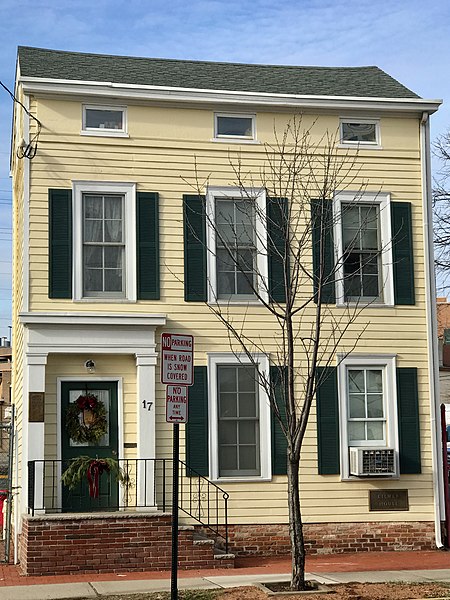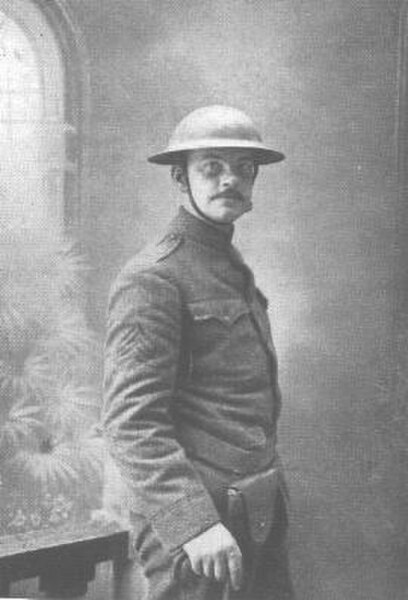Alfred Joyce Kilmer was an American writer and poet mainly remembered for a short poem titled "Trees" (1913), which was published in the collection Trees and Other Poems in 1914. Though a prolific poet whose works celebrated the common beauty of the natural world as well as his Catholic faith, Kilmer was also a journalist, literary critic, lecturer, and editor. At the time of his deployment to Europe during World War I, Kilmer was considered the leading American Catholic poet and lecturer of his generation, whom critics often compared to British contemporaries G. K. Chesterton (1874–1936) and Hilaire Belloc (1870–1953). He enlisted in the New York National Guard and was deployed to France with the 69th Infantry Regiment in 1917. He was killed by a sniper's bullet at the Second Battle of the Marne in 1918 at the age of 31. He was married to Aline Murray, also an accomplished poet and author, with whom he had five children.
Birthplace at 17 Joyce Kilmer Avenue, New Brunswick
The Kilmer family lived in this home on Airmount Road in Mahwah, New Jersey. It was here that his poem "Trees" was written in February 1913.
Sgt. Joyce Kilmer, as a member of the 165th Infantry Regiment, United States Army, c. 1918
Cenotaph at Elmwood Cemetery
"Trees" is a lyric poem by American poet Joyce Kilmer. Written in February 1913, it was first published in Poetry: A Magazine of Verse that August and included in Kilmer's 1914 collection Trees and Other Poems. The poem, in twelve lines of rhyming couplets of iambic tetrameter verse, describes what Kilmer perceives as the inability of art created by humankind to replicate the beauty achieved by nature.
The Kilmer family home in Mahwah, New Jersey, where "Trees" was written in February 1913
The cover of Joyce Kilmer's Trees and Other Poems, published in 1914
The Joyce Kilmer Tree in New York City's Central Park, located near several World War I monuments, planted after the poet's death
First published in the August, 1913 issue of Poetry: A Magazine of Verse, Chicago.







